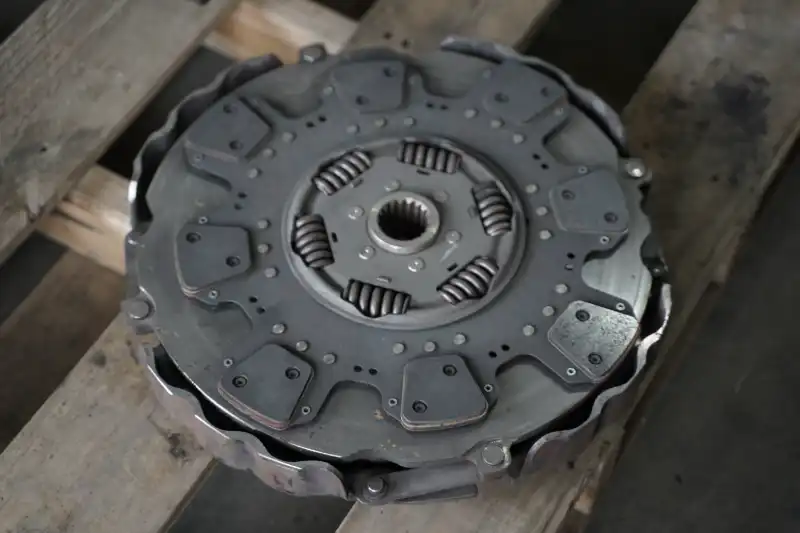
Preventative Maintenance for Heavy-Duty Trucks: Why It Matters
Date
author
reading time
Heavy-duty trucks are the backbone of industries ranging from logistics to construction, tasked with hauling massive loads and operating in demanding conditions. However, even the most durable trucks require regular preventative maintenance to avoid costly breakdowns, enhance performance, and ensure safety.
At Myles Truck Repair, we believe that proactive maintenance is not just an option—it’s a necessity. This guide explains the importance of preventative maintenance, highlights key areas to focus on, and provides actionable tips to keep your heavy-duty truck road-ready and reliable.
What is Preventative Maintenance?
Preventative maintenance refers to routine inspections, servicing, and repairs performed to identify and resolve potential issues before they lead to failure. It includes tasks like:
- Oil changes
- Brake system checks
- Tire inspections
- Fluid replacements
- Suspension and steering system inspections
Unlike reactive maintenance, which addresses problems after they occur, preventative maintenance focuses on avoiding those problems in the first place.
Why Preventative Maintenance Matters
Reduces Downtime
Unexpected breakdowns can derail schedules, leading to lost revenue and frustrated customers. Preventative maintenance minimizes the risk of on-road failures, keeping your truck operational and dependable.
Improves Safety
Faulty brakes, worn tires, or engine malfunctions pose serious safety risks. Regular maintenance ensures that critical systems are functioning properly, protecting drivers, cargo, and other road users.
Extends Vehicle Lifespan
Routine care prevents excessive wear on key components, prolonging the life of your truck and maximizing your return on investment.
Boosts Fuel Efficiency
A well-maintained truck operates more efficiently, reducing fuel consumption and lowering operating costs. Tasks like tire inflation, fuel system cleaning, and air filter replacement contribute to better mileage.
Ensures Regulatory Compliance
Commercial vehicles are subject to strict safety and emissions regulations. Preventative maintenance helps you stay compliant, avoiding fines and failed inspections.
Key Areas to Focus on During Preventative Maintenance
1. Oil and Filter Changes
Oil lubricates your engine’s moving parts and prevents overheating, while filters remove contaminants. Over time, oil degrades, and filters clog, leading to reduced performance.
What to Do:
- Change the oil and filters every 10,000–15,000 miles or as recommended by the manufacturer.
- Use high-quality oils and filters designed for heavy-duty trucks.
2. Brake System Inspections
The brake system is one of the most critical safety components. Worn pads, leaky air lines, or malfunctioning slack adjusters can compromise stopping power.
What to Do:
- Check brake pads, rotors, and drums for wear.
- Inspect air brake systems for leaks and proper pressure levels.
- Adjust slack adjusters to ensure consistent braking performance.
3. Tire Maintenance
Tires bear the weight of your truck and its cargo, making proper care essential for safety and efficiency.
What to Do:
- Measure tread depth regularly and replace tires when they reach the minimum threshold (4/32 inches for steer tires and 2/32 inches for others).
- Check for uneven wear, bulges, or cracks.
- Ensure tires are inflated to the manufacturer’s recommended PSI.
4. Fluid Checks and Replacements
Your truck relies on a variety of fluids to function efficiently, including coolant, transmission fluid, and brake fluid.
What to Do:
- Monitor fluid levels and top off as needed.
- Flush and replace fluids according to the manufacturer’s schedule.
- Check for leaks in hoses, reservoirs, and seals.
5. Suspension and Steering Systems
A damaged suspension or steering system affects handling and ride comfort, making regular inspections crucial.
What to Do:
- Inspect shocks, struts, and leaf springs for cracks or wear.
- Check for excessive play in the steering system.
- Replace worn bushings, bolts, or bearings.
Common Preventative Maintenance Mistakes
1. Skipping Scheduled Maintenance
Delaying routine maintenance can allow small issues to escalate into major problems, increasing repair costs and downtime.
2. Ignoring Warning Signs
Unusual noises, vibrations, or dashboard alerts should never be ignored. Addressing these signs promptly can prevent expensive failures.
3. Using Low-Quality Parts
Cheap or incompatible parts may save money upfront but often wear out faster and can cause additional damage. Always opt for high-quality, OEM-approved components.
4. Neglecting Driver Training
Drivers play a critical role in spotting potential issues. Without proper training, they may overlook warning signs or fail to report minor problems that could lead to major failures.
Tips for Implementing a Preventative Maintenance Program
Create a Maintenance Schedule
Develop a detailed calendar based on mileage, operating conditions, and manufacturer recommendations. Ensure tasks like oil changes, brake inspections, and tire rotations are performed on time.
Use Fleet Management Software
For fleet operators, digital tools can track maintenance schedules, log service history, and send reminders for upcoming tasks, streamlining the process.
Partner with a Trusted Repair Shop
Working with experienced professionals like Myles Truck Repair ensures your maintenance tasks are performed thoroughly and efficiently, reducing the risk of oversights.
Benefits of Partnering with Myles Truck Repair
At Myles Truck Repair, we specialize in preventative maintenance for heavy-duty trucks. Our services include:
Comprehensive inspections for brakes, tires, and suspension systems.
- Advanced diagnostics to detect hidden issues.
- High-quality repairs using OEM parts.
- Expert advice tailored to your truck’s specific needs.
By choosing us, you gain peace of mind knowing your vehicle is in capable hands.
Conclusion
Preventative maintenance is the foundation of a reliable, efficient, and long-lasting heavy-duty truck. By addressing critical areas like oil changes, brakes, and tires, you reduce the risk of breakdowns, enhance safety, and lower operating costs.
At Myles Truck Repair, we’re here to help you stay ahead of potential issues and keep your truck running smoothly. Contact us today to schedule your preventative maintenance service and experience the benefits of proactive care.
more articles
Join us on this expedition through the realms of thought-provoking narratives, practical advice, and the latest trends, as we strive to be your go-to source for inspiration and knowledge.
our Truck Repair Shop locations
Come visit us at any of our 2 locations, with shops in Auburn and Fayetteville. We provide extensive service to Atlanta, Marietta, Athens, & more!


